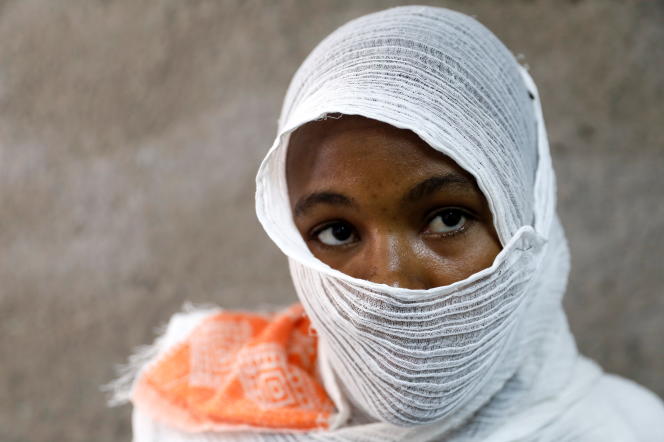On November 2, 2022, while in South Africa the Ethiopian government and insurgents of the Tigray People’s Liberation Front (TPLF) signed an agreement ending two years of civil war, Bezawit (her first name has been changed) was kidnapped by Eritrean soldiers in the northern Tigray region. For three months, while the world welcomed the ongoing peace process in Ethiopia, this 37-year-old mother of two lived through hell, raped by several Eritrean fighters in the locality of Kokob Tsibah, where she reside.
She remembers : “They told me: ‘it’s no use shouting, no one will come to save you.’ Then it lasted three months. They raped me in turn, like one takes a shift. » Her testimony, along with that of 48 other women, serves as the basis for Amnesty International to affirm, in a report released Tuesday, September 5that “despite the cessation of hostilities, human rights violations continue”. In this conflict, Tigrayans found themselves on the front line. At least 120,000 of them were victims of rape during the war, according to regional health authorities.
In the village of Kokob Tsibah alone, Amnesty International collected, between 1er November 2022 and January 19, 2023, the testimony of fifteen sex slaves in the hands of Eritreans, who still act today as an occupying force in Tigray. “The Eritrean army in Kokob Tsibah carried out gang rapes of women in their homes […] on suspicion that their husbands had joined the Tigrayan rebels. This situation amounts to sexual slavery.reads the report, titled “Sooner or later, they will have to be brought to justice”.
Although the sample of witnesses analyzed by Amnesty International (which, like all human rights organizations, is not authorized to visit Ethiopia) is limited in time and space, it illustrates the systematic use of rape in Tigray, during and after the war. “Rapes and sexual assaults are not only commonplace, but they persist over time, until today, in different areas of Tigray”says Haimanot Ashenafi, a researcher at the NGO, who believes that the Eritrean forces have committed war crimes and crimes against humanity.
Blind spot
Eritrea, initially an ally of Ethiopian Prime Minister Abiy Ahmed against the TPLF, continues to maintain a presence in northern Tigray, a region with which it has long-standing border disputes. His army established itself on a strip of land in northeastern Tigray. The area is a blind spot for the international community. Observers from the UN and the African Union (AU) cannot go there. “Cases of raped women from Irob or Zalambessa [deux zones occupées par l’Erythrée] reach us every week”confirm to World a surgeon at Adigrat hospital in the north of the region.
You have 57.15% of this article left to read. The following is for subscribers only.
